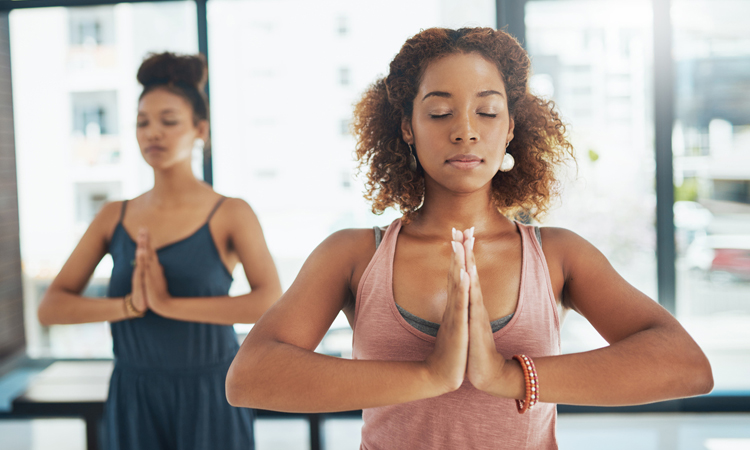“Spirituality is not a one-size-fits-all approach and it’s possible for all of us to find a spiritual sense of purpose. Connecting to something higher than yourself is powerful, rewarding and healing all at the same time.”
-Rose Caiola
Spiritual Practices lead to a host of benefits
While fewer Americans now believe in God, and millennials are the least religious generation in the last few decades, 90 percent of Americans say they’ve relied on prayer in times of duress. What’s more, while many people start yoga for exercise, those who actually stick to it do so for spiritual reasons. So, what is it about spirituality that draws people in, even as our culture seems to be shifting away from it?
Whether you consider yourself more traditionally religious or a mindful, spiritual yogi, research suggests you are more likely than non-spiritual people to:
- claim to be “very happy”
- have a longer life
- have a lower risk of depressionand suicide
- be more resilient
- be more faithful in relationships
- have happier children and a more satisfying family life
But how does all this happen? What’s the connection? Here are a few of the major ways spirituality can affect your physical and emotional health. Spiritual people are more likely to:
- Volunteer or donate to the poor. Research shows that regular community service buffers you against the effects of stress, leading to a longer life.
- Meditate to cope with stress. Forty-two percent of highly spiritual people will meditate when stressed rather than overeat or indulge in other unhealthy coping behaviors. And, as you’ve probably heard, meditation has all kinds of benefits—from improved health, happiness, and focus to decreased pain and depression.
- Have a built-in community. After food and shelter, social connection is the top predictor of health, happiness and longevity. Religious people are more likely to spend time with family and feel a strong sense of belonging to a community of like-minded people.
- Turn to prayer. Research suggests prayer helps people find comfort by helping them deal with difficult emotions, grant forgiveness, and form healthier relationships.
Of course, these findings could also be the result of the placebo effect; we tend to feel better when we believe something will make us feel better. But it never hurts to take a yoga class, volunteer at a homeless shelter or try a silent retreat to see for yourself.
This article originally appeared on Emma Seppala.com and is republished here with permission.



